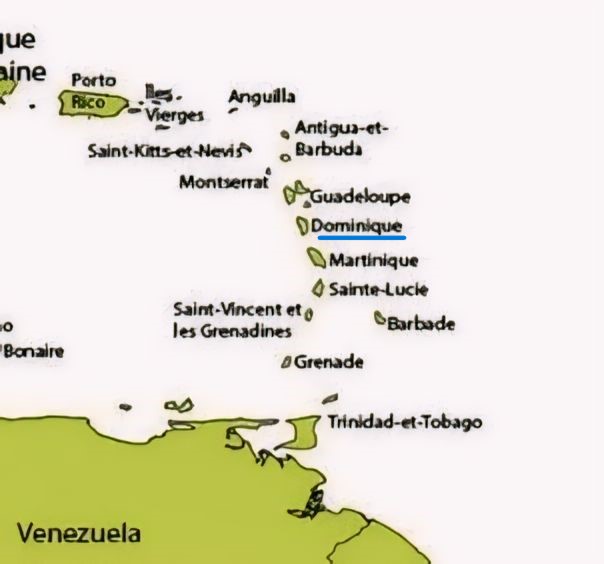Dominica LGBT activist says queer people still aren’t free
Moïse Manoël-Florisse, is an African-Caribbean online journalist keeping an eye…
Despite decriminalization, anti-LGBT prejudice persists in Dominica

Dominica’s High Court has struck down the nation’s anti-sodomy law, but homophobia remains pervasive.
“The law has changed in Dominica, but it will still take time to change people’s attitudes,” says Daryl Phillip, head of Minority Rights Dominica (MiRiDom). “Before and even now, people allow themselves to treat LGBT people as second-class citizens.”
On April 22, the High Court of the Organisation of Eastern Caribbean States ruled that sections 14 and 16 of the Dominica Sexual Offences Act, which sentenced people in same-sex relationships to 10 years’ imprisonment, were unconstitutional and void. In particular, the judges found that these laws clearly infringed the rights to privacy, liberty, and security, as well as protection against discrimination.
Daryl Phillip, the head of MiRiDom, which supported the legal action, discussed the current situation during an interview with 76Crimes.
Daryl Phillip: The law has changed in Dominica, but it will still take time to change people’s attitudes, because before and even now, people allow themselves to treat LGBT people as second-class citizens, or unprincipled people of little value in the popular imagination, who are thrown around or singled out for public vindication. You can feel it in the street, at the turn of a comment, a remark or a little dig thrown in here and there. There really is a lot of animosity, and it’s constantly fuelled by the local churches, which have all taken a stand against the decriminalisation of homosexuality.
This has repercussions for the operation of public services and administrations, since people who have been the subject of LGBTphobic attacks are the object of disdain and little consideration, with little chance of the aggressors being punished. We have a culture of impunity that does not encourage people to report the violence they suffer. And it’s a vicious circle, of course. In the last decade, I’ve already recorded 3 homophobic murders on the island, even though these crimes are not always recorded as such, unfortunately.
It’s a real schizophrenia. While LGBT+ people are everywhere, they can’t live out their love in the open and we’re urged to stay in the wardrobe. It’s a very heavy situation, exacerbated by the island’s small population of just 70,000 and the pusillanimity of local politicians on societal issues.
In this context, changing mentalities can only really come from us first, and activism in the insular areas of small developing economies is an extremely lonely journey, where support is few and far between. For example, we tried to develop a helpline in Dominica, in collaboration with the Caribbean Vulnerable Communities Coalition in Jamaica, but it didn’t work. Nevertheless, in line with other LGBT+ communities around the world, we organise a small evening every year around the International Day Against Homophobia and Transphobia, around 17 May, when we get together. It makes up for the lack of a bar and leisure space during the rest of the year.
Erasing 76 Crimes: What about intra-Caribbean cooperation?
Daryl Phillip: With the French West Indies, as part of the sharing and exchange of information on the fight against HIV/AIDS with the AIDES association, I had the opportunity to visit our neighbours in Guadeloupe, but that was a few years ago.

Otherwise, most of the contacts I make are through Cariflags, a forum of essentially English-speaking regional organisations with which we share the same concerns about the decriminalisation of homosexuality in the former British colonies.
We want to create a body of jurisprudence that can lead to the region becoming a non-discriminatory place to live, by making homophobic legislation unconstitutional in the absence of political progress in national parliaments. And we generally keep ourselves informed of what others are doing. In recent years, the examples of Belize (2016), Trinidad and Tobago (2018), Barbados (2022), then Antigua and Barbuda (2022) and Saint Kitts and Nevis (2022), which have decriminalised homosexuality, have been immense sources of inspiration for us.
However, we must remain modest in our triumph, as the law on public indecency, which has not been repealed, may be used to repress forms of expression of homosexuality in the social arena. There is still a long way to go to achieve a fairer Dominica.
I would like to see people from the French West Indies visit our island more often to share moments like Carnival with us. However, I would like to add that they must take into account the cultural, political and social context of our country, by showing that it is possible to be homosexual while on holiday, as normally as possible, without offending the sensibilities of the religious majority in Dominica.




